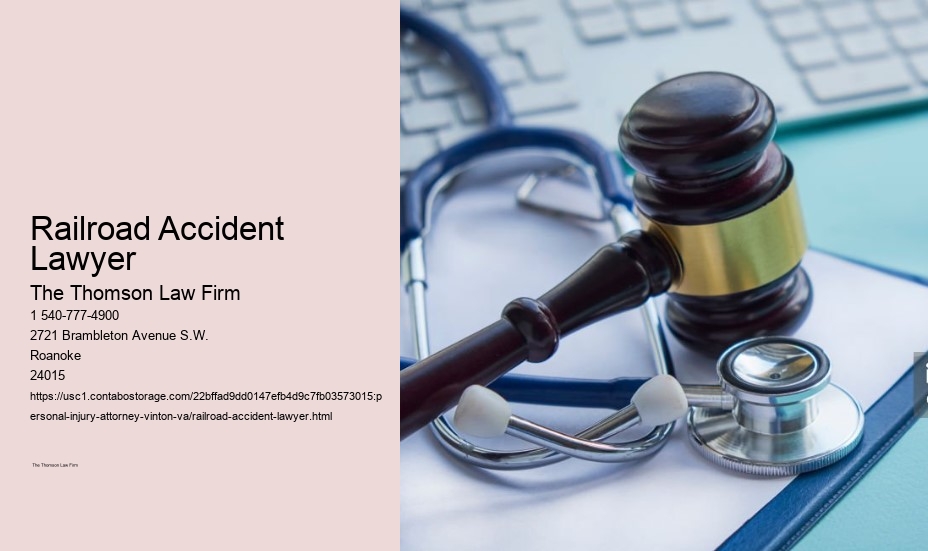

Making the decision requires careful consideration of various factors.
Nature of the Case
The strength of the evidence, the severity of the injury, and the likelihood of winning at trial are crucial considerations.
Financial Considerations
The costs associated with going to trial versus accepting a settlement offer should be weighed. Immediate financial needs might make a settlement more appealing.
Emotional and Psychological Factors
The emotional toll of a prolonged trial versus the relief of a quicker settlement should not be underestimated. Each individual's situation and capacity to handle stress are different.
Conclusion
Deciding between a settlement and a trial in a personal injury case is a significant choice that can affect your financial and emotional well-being.
Understanding Settlements: Insights from a Personal Injury Attorney
Introduction to Settlements
When you’ve been injured due to someone else’s negligence, navigating the legal waters can be daunting. One term you’ll hear frequently is “settlement.” But what does it really mean, and why is it crucial in personal injury cases?
What is a Settlement?
A settlement is an agreement between the injured party (plaintiff) and the responsible party (defendant), often facilitated by their respective attorneys, to resolve a legal claim without going to trial. This agreement typically involves the defendant paying the plaintiff a sum of money in exchange for dropping the lawsuit.
Importance of Settlements in Personal Injury Cases
Settlements are vital in personal injury cases as they provide a quicker, less adversarial resolution compared to court trials. Read about the best Railroad Accident Lawyer in Vinton, VA. They also offer certainty and control over the outcome, which is not always guaranteed in a courtroom.
The Settlement Process
Initial Consultation with an Attorney
Your journey to a settlement begins with consulting a personal injury attorney. During this meeting, the attorney will evaluate the merits of your case, explain your rights, and outline possible outcomes.
Investigation and Evidence Gathering
Once you decide to proceed, your attorney will start investigating the incident. This involves gathering evidence like medical records, accident reports, witness statements, and other relevant documentation to build a strong case.
Negotiation with Insurance Companies
Insurance companies are usually involved in settlement negotiations. Your attorney will handle these negotiations, aiming to secure the best possible compensation for your injuries.
Mediation and Arbitration
If initial negotiations don’t yield a satisfactory result, mediation or arbitration might be the next steps. These alternative dispute resolution methods involve a neutral third party helping to facilitate a mutually agreeable settlement.
Factors Influencing Settlement Amounts
Severity of Injuries
The nature and extent of your injuries significantly impact the settlement amount. Severe injuries that require long-term treatment or result in permanent disability typically command higher settlements.
Medical Expenses
All medical costs incurred due to the injury, including hospital stays, surgeries, medications, and rehabilitation, are factored into the settlement amount.
Lost Wages and Earning Capacity
If your injury prevents you from working, you can claim compensation for lost wages. Additionally, if the injury affects your future earning potential, this loss is also considered in the settlement.
Pain and Suffering
This non-economic damage compensates for the physical pain and emotional distress caused by the injury. Calculating this can be complex, but it is a critical component of the settlement.
Comparative Negligence
If you are found partially responsible for the incident, the settlement amount might be reduced. This principle, known as comparative negligence, varies by state.
Common Misconceptions about Settlements
Settlements are Quick and Easy
Many people believe that settlements are a quick fix. While they are generally faster than trials, the process can still be lengthy, involving detailed investigations and negotiations.
You Will Receive the Full Amount Claimed
Another misconception is that you’ll get every penny you claim.
Role of a Personal Injury Attorney
Legal Expertise and Guidance
A personal injury attorney brings legal expertise to your case, ensuring that you understand your rights and options every step of the way.
Negotiation Skills
Attorneys are skilled negotiators. They know how to deal with insurance companies and other parties to secure a fair settlement for you.
Representation in Court if Necessary
If a fair settlement cannot be reached, your attorney will represent you in court, presenting your case to a judge or jury.
Benefits of Settling a Personal Injury Case
Faster Resolution
Understanding Personal Injury Claims
Personal injury claims encompass a wide range of incidents, from car accidents to slip and fall cases. The primary goal is to seek compensation for the injuries and damages you've sustained. But how is this compensation calculated? Let's dive into the factors that attorneys consider.
The Role of Personal Injury Attorneys
Why You Need an Attorney: Hiring a personal injury attorney is crucial for navigating the complexities of your claim. They bring expertise, experience, and resources that you might not have access to on your own. Plus, they can negotiate on your behalf, ensuring you get the best possible outcome.
Initial Consultation and Case Review
Gathering Information: The first step in evaluating your claim is an initial consultation. During this meeting, your attorney will gather all the necessary information about your case, including details of the accident, medical records, and any evidence you have. This helps them understand the scope of your injuries and the circumstances surrounding the incident.
Assessing Liability
Determining Fault: One of the most critical aspects of your claim is determining who is at fault. Your attorney will investigate the incident, review police reports, witness statements, and any other relevant documents to establish liability. This step is crucial because it sets the foundation for your claim.
Evaluating Damages
Economic vs. Non-Economic Damages: Damages in personal injury claims are categorized into economic and non-economic. Economic damages are tangible, such as medical bills and lost wages, while non-economic damages include pain and suffering. Both types are essential in calculating the value of your claim.
Medical Expenses
Immediate and Future Costs: Medical expenses form a significant part of your claim. This includes not only your immediate medical bills but also future medical costs related to your injury. Your attorney will work with medical experts to estimate these future expenses accurately.
Lost Wages and Loss of Earning Capacity
Past and Future Income: If your injury has caused you to miss work, you are entitled to compensation for lost wages. Additionally, if your ability to earn in the future has been impacted, this loss of earning capacity will also be factored into your claim.
Pain and Suffering
Emotional and Physical Impact: Pain and suffering are subjective but play a crucial role in your claim. This category covers the physical pain and emotional distress caused by your injury. Attorneys use various methods to quantify this, including the multiplier method, which involves multiplying your economic damages by a specific number.
Property Damage
Valuation of Damaged Property: If any of your personal property was damaged in the incident, such as your car in a vehicle accident, its value will be included in your claim. Your attorney will gather estimates and repair bills to determine the property damage cost.
Punitive Damages
When They Apply: In some cases, punitive damages may be awarded. These are not meant to compensate you but to punish the defendant for particularly egregious behavior. Your attorney will advise if this is applicable to your case.
Insurance Companies and Their Role
Negotiating with Insurers: Dealing with insurance companies can be challenging. They often try to minimize payouts. Your attorney will handle all communications with insurers, using their negotiation skills to ensure you receive a fair settlement.
Using Expert Witnesses
Strengthening Your Case: Expert witnesses can provide critical testimony to support your claim. This might include medical experts, accident reconstruction specialists, or economists. Their input can significantly impact the valuation of your claim.
Settlement vs. Trial
Pros and Cons of Each: Many personal injury claims are settled out of court. However, if a fair settlement cannot be reached, your attorney might advise going to trial. Each option has its pros and cons, and your attorney will help you make an informed decision.
Calculating the Final Claim Value
Methods and Formulas Used: Attorneys use various methods to calculate the final value of your claim. This can include the multiplier method, the per diem method for pain and suffering, and detailed calculations for economic damages. They aim to ensure you are fully compensated for all your losses.
Common Challenges in Claim Valuation
Overcoming Obstacles: Several challenges can arise in valuing a claim, such as disputes over liability, underestimating future medical costs, and dealing with uncooperative insurance companies. Experienced attorneys know how to navigate these obstacles to maximize your compensation.
Conclusion
Evaluating the value of a personal injury claim involves many factors and requires a thorough understanding of both legal and medical issues. Personal injury attorneys play a vital role in ensuring you receive fair compensation for your injuries and losses. By assessing liability, evaluating damages, and negotiating with insurers, they work to achieve the best possible outcome for your case. Remember, having a skilled attorney on your side can make all the difference in the world when it comes to the success of your claim.
Preparing for Your First Meeting with a Personal Injury Attorney in Vinton, VA
Understanding Personal Injury Law
What is Personal Injury Law?
Personal injury law, also known as tort law, allows an injured person to go to civil court and get a legal remedy (damages) for all losses stemming from an accident or other incident. Premises Liability Lawyer The purpose of the personal injury system is to allow the injured person to be compensated financially or "made whole" after he or she has suffered harm due to someone else's carelessness or intentional conduct.
Common Types of Personal Injury Cases
Common types of personal injury cases include car accidents, slip and fall cases, medical malpractice, dog bites, and workplace accidents. Each type has its own specific legal principles and requires a unique approach to ensure a fair outcome.
The Importance of a Personal Injury Attorney
Why You Need Legal Representation
Navigating the legal system can be daunting, especially when you're dealing with injuries and recovery. A personal injury attorney has the expertise to handle the legal aspects of your case, allowing you to focus on healing. They understand the intricacies of personal injury law and can guide you through the process, ensuring that your rights are protected.
How an Attorney Can Help
An attorney can help in numerous ways: they can investigate your case, gather evidence, negotiate with insurance companies, and represent you in court if necessary. They also provide valuable advice on the best course of action, increasing your chances of a successful outcome.
Finding the Right Personal Injury Attorney in Vinton, VA
Research and Recommendations
Start by researching attorneys in your area. Look for those with good reviews and ratings. Ask friends, family, or colleagues for recommendations. Check their websites and read about their experience and expertise.
Initial Consultations
Many attorneys offer free initial consultations. Use this opportunity to discuss your case, ask questions, and determine if they are a good fit for you. Pay attention to how they communicate and whether they seem genuinely interested in your case.
reparing for Your First Meeting
Gather All Necessary Documents


Medical Records
Collect all your medical records related to the injury, including doctor's notes, test results, and prescriptions. These documents provide evidence of your injuries and the treatment you have received.
Police Reports
If your injury involved a car accident or any incident reported to the police, obtain a copy of the police report. This document includes crucial details about the incident and can support your case.
Insurance Information
Bring any insurance policies or correspondence related to your injury. This includes health insurance, car insurance, or any other relevant policies. Your attorney will need this information to understand the coverage available to you.
Create a List of Questions
Prepare a list of questions to ask the attorney. This can include inquiries about their experience, the potential outcomes of your case, and how they plan to handle it. Bicycle Accident Lawyer Knowing what to ask can help you feel more confident and informed.
Know Your Case Details
Be ready to provide a detailed account of the incident that led to your injury. Include dates, locations, and any other relevant information. The more details you can provide, the better your attorney can understand your case.
What to Expect During the Meeting
Discussing Your Case
During the meeting, the attorney will ask you to explain your case in detail. They will review the documents you brought and may ask additional questions to clarify certain points. Accident Lawyer This is also the time for you to ask your prepared questions.
Understanding Legal Fees
It's essential to discuss legal fees upfront. Most personal injury attorneys work on a contingency fee basis, meaning they only get paid if you win your case. Make sure you understand their fee structure and any additional costs you might be responsible for.
Setting Expectations
The attorney will likely provide an overview of what to expect moving forward. This includes the potential timeline for your case, the steps involved, and what you need to do to help. Setting clear expectations can help prevent misunderstandings later on.
After the Meeting
Next Steps
After your first meeting, the attorney will begin investigating your case in detail. They may contact you for more information or documents. It's crucial to respond promptly and keep the lines of communication open.
Maintaining Communication
Regular communication with your attorney is vital. Make sure you know the best way to contact them and how often you should expect updates. Being proactive can help ensure your case progresses smoothly.
Preparing for the Legal Process
Your attorney will guide you through each step of the legal process, from filing a claim to negotiating settlements or going to trial.
Conclusion
Preparing for your first meeting with a personal injury attorney in Vinton, VA, can seem overwhelming, but with the right approach, you can make the process smoother. By understanding personal injury law, finding the right attorney, and coming prepared, you set the stage for a successful legal journey. Product Liability Lawyer Remember, your attorney is there to help you navigate this challenging time and fight for the compensation you deserve.

A personal injury attorney is a legal professional who provides representation to individuals who have been injured physically or psychologically due to the negligence or wrongdoing of another party. These attorneys specialize in tort law, which covers civil wrongs and damages.
Yes, hiring a personal injury attorney is often worth it. An attorney's expertise can lead to a higher settlement than you might achieve on your own. They handle the legalities, negotiate with insurance companies, and ensure your rights are protected throughout the process.
Yes, personal injury attorneys at Thomson Law Firm handle medical malpractice cases. If you have been harmed due to a healthcare provider's negligence, we can help you pursue a claim for compensation.
Communication frequency can vary, but a good personal injury attorney should provide regular updates on your case's progress. At Thomson Law Firm, we believe in keeping our clients informed and are always available to answer questions and address concerns.
To find a good personal injury attorney in Vinton, VA, seek recommendations from friends, family, or online reviews. Research attorneys' backgrounds, check their credentials, and schedule consultations to discuss your case and gauge their suitability for your needs.